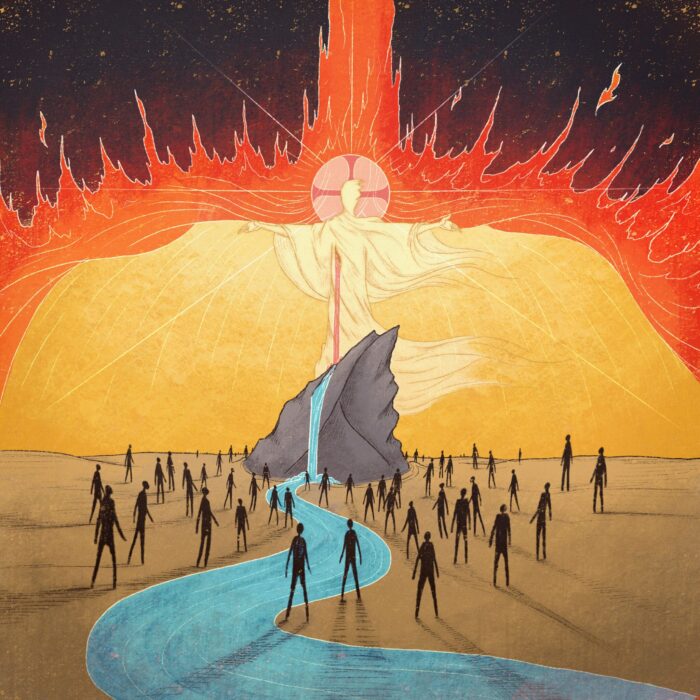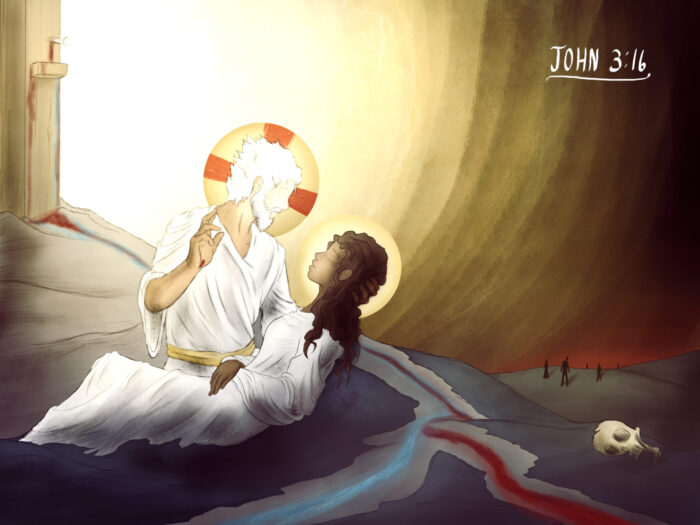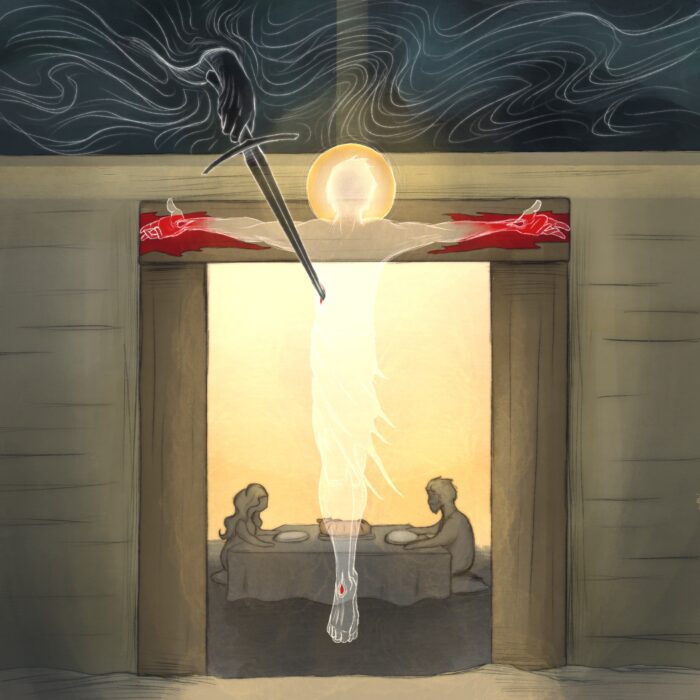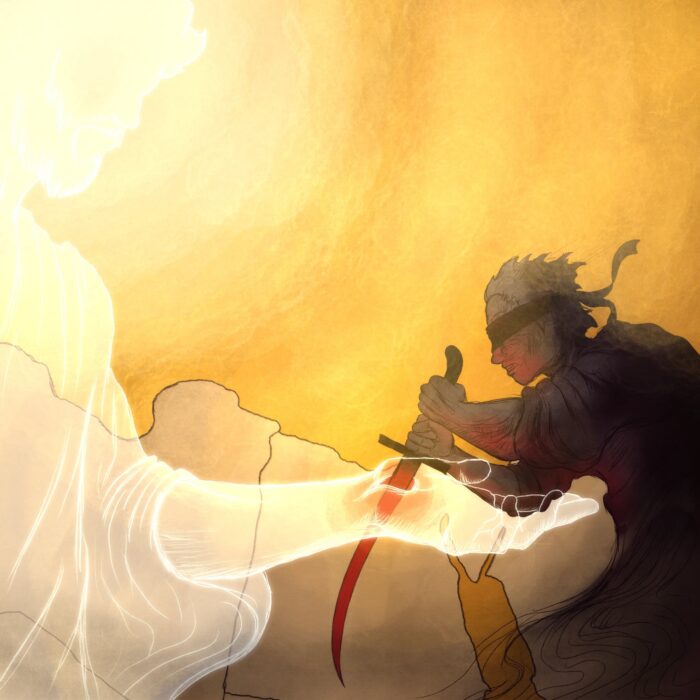Exodus 17:7, ‘…they tested YHWH by saying, ‘is YHWH among us (ἐν ἡμῖν) or not?’’
This is the final verse in the account of Moses striking the rock so that water might be given to the people in the wilderness. Just as a little background: The people are grumbling and demanding water, so Moses cries out to the Lord. YHWH tells Moses to take ‘the staff with which you struck the Nile’ (v.5) and to pass before the people together with the elders. This seems to be establishing a judgment scenario. Not only is Moses’ staff specifically highlighted as the one that brought judgment against Egypt (and its gods), but the passing on before the people and the inclusion of the elders likely evokes a judgment scene as well. In this context of judgment—wherein we would expect the people to be judged for their grumbling—it is YHWH who takes His stand before Moses (v.6). Again, the idea of standing before the assembly of the elders and the one with the staff of judgment strongly suggests a scene of judgment. And yet, it is YHWH who stands before Moses, a jarring reversal of expectations. Finally, as YHWH stands on the rock before Moses, Moses is commanded to strike the rock with his judgment staff so that the rock should be split and water might pour out.
So this is the way that YHWH proves Himself to be among His people…not merely by providing water for them, but by providing it in this way. And what is ‘this way’? YHWH, rather than the rebellious people, stands before divine judgment (since the staff is not a representative of Moses’ judgment, but of God’s) and symbolically receives the blow of judgment in Himself. HE is symbolically smitten, stricken, pierced by the rod of judgment so that water might flow out into the wilderness of God’s people. In His bearing of the blow of His people’s judgment such that life might flow from the ‘wounds’ of the rock, in this way YHWH proclaims Himself indeed to be ‘among us’ (ἐν ἡμῖν)…Now, why is this significant?
It is significant because John 1:14 uses precisely this same phrase in speaking of the glory of God revealed in Jesus: ‘The Word became flesh and dwelt among us (ἐν ἡμῖν), and we have seen His glory, glory as of the only begotten one from the Father, full of grace and truth.’ That John has Exodus in mind in this section of his gospel is clear from his echoes of Ex34:6-7 (grace and truth = steadfast love and faithfulness), and Exodus 33:13,18ff (‘show my your glory’ / ’we beheld His glory’; ‘no man shall see me and live’ / ‘no one has ever seen God’), so it is not a stretch to say that John is intentionally echoing Exodus 17:7 in his prologue as well (we know for sure that he has ‘stricken rock’ typology in mind later on in the gospel, 19:34,36 as one example).
So, Israel asks, ‘Is YHWH among us (ἐν ἡμῖν)?’, and John declares that the incarnate Word has indeed dwelt ἐν ἡμῖν. And the ‘proof’ of YHWH in the midst of His people is the same in both Exodus and John, namely, the revelation of the beauty of His Name through the substitutionary bearing of judgment. In Exodus, it is as YHWH stands before and bears the blow of the rod of judgment that water pours from the rock and the people know that YHWH is indeed among them…Similarly, in John, it is as YHWH incarnate is raised up on the cross as the image of His people’s curse, it is as He stands before and bears in His own flesh the judgment of the world such that rivers of living water pour from his opened heart, and it is as this same one stands beyond death, raised up again with the wounds of suffering overcome and transfigured in His flesh, it is in this way that the glory of God is revealed and His people know that He dwells among them.
Is YHWH ἐν ἡμῖν? Yes….And how do we know? Because He has stood in our place before the rod of wrath, He has borne in our place the blow of our judgment, and He has opened the Rock of Ages so that waters of life have flow out into our desert. In this way we know, we know, we know that YHWH God is ἐν ἡμῖν.




